 Signin with Google
Signin with Google Signin with Facebook
Signin with Facebook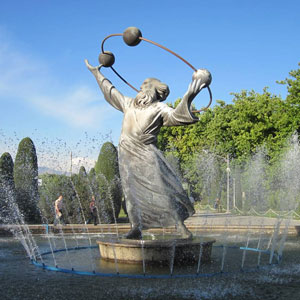
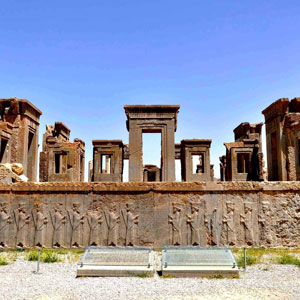 Literature,History
Literature,HistorySaadi, the Iranian Master of Speech
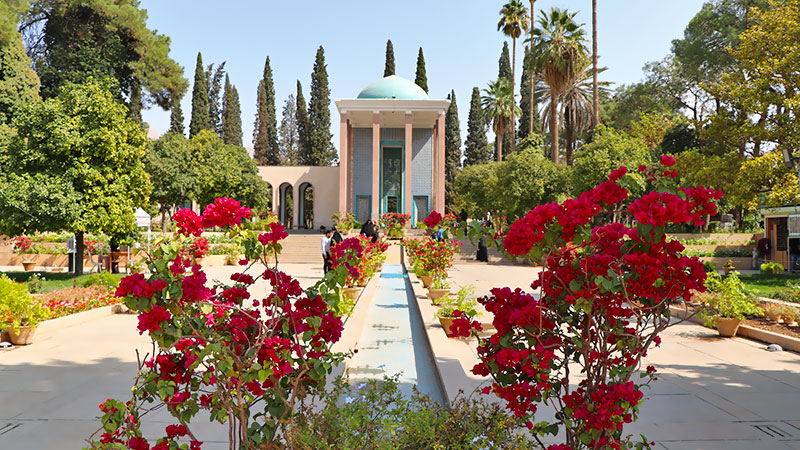
Saadi, A celebrated moralist, poet and traveller
When Abdullah named his new-born son Muslih al-Din (in 1210), he did not know that the universe has chosen him to be a messenger and a reformer of the literature world. Abdullah died soon, and young Muslih al-Din decided to leave his family and home town, Shiraz. He wanted to seek superior instructions at Nizamiyya, the renowned university of the time in Baghdad, Iraq.
But his great enthusiasm to learn was not the only reason to move to Baghdad. The insecure conditions of Iran due to the invasion of the Mongols forced him to leave his home when he was a young boy in 1225. Learning law, history, Islamic science and philosophy and Arabic writing, this intelligent fellow showed his great talent and started teaching at Nizamiyya.
He began to meander through Syria, Anatolia, Iraq, Egypt. He continued his journey to Azerbaijan, Pakistan, and India. He also had a pilgrimage to Mecca and Medina and visited Jerusalem.
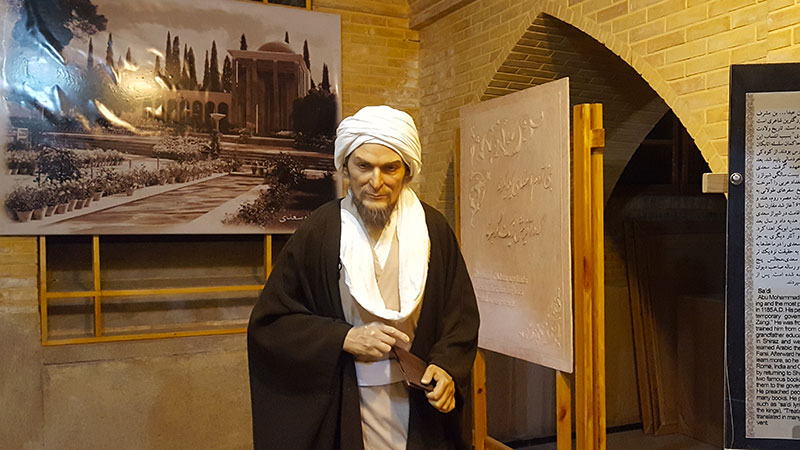
After thirty years of travelling, with the pack of various worthy experiences, he went back home. Shiraz, now passing quiet and peaceful days under the rule of Atabakan dynasty, welcomed Muslih al-Din warmly. The aesthete ruler of Shiraz, Atabak Sa'd ibn Zangy, admired him and invited him to join his court and be the tutor of his kids. As a sign of gratitude, he chose Sa'adi as his nom de plume or a pen name.
Saadi of Shiraz, the tongue of unseen
Soon after his settlement in Shiraz, fifty-year-old Saadi decided to write what he had seen during long years of adventure. He beautifully narrated the hard times of famine in Syria, and what had happened to poor peasants. He told the story of trading the seas with merchants and sailors or gave a vivid picture of Iraq and his excitement to see the Basra port and Tigris River for the first time.
Saadi recalled the stories of vendors and farmers when they were sharing a room in a remote inn in Adana. He deeply sympathized with survivors of Mongol invasions in Central Asia as he had the same experience. Saadi remembered his hard times in extreme distress as a slave in the Crusaders' prisons at Acre. He enjoyed the company of a local Turkish ruler on his journey to India. He did not forget mingling with pilgrims and elites in the bazaars of Egypt and listening to local music. Listening to preachers and clerics to get familiar with different sects and religious beliefs had widened his knowledge and made Saadi a man of the world.
Two years, two masterpieces of the Persian literature
Saadi wrote Bustan (The Orchard) entirely in verse form in 1257. This Persian masterpiece revolves around primary human ethics and reminds justice, contentment, generosity and other moral virtues.
Praising Beneficence, Saadi says:
Look into the state of the heart of those wearied;
For thy heart may, perhaps, one day be broken.
Make the hearts of those dejected happy;
Remember the day of helplessness (the Judgment Day).
Thou art not a beggar at the doors of others;
Drive not, in thanks to God, a beggar from thy door.
A year after Bustan, he finished Golestan (the Rose Garden). Combining lyrics and short stories with interesting plots and comprehensible words, Saadi did a great job to give us practical guidance, and friendly advice as a kind teacher hoping to make our life and the world a better place.
In the Name of Allah, the Compassionate, the Merciful
Laudation is due the highest, the most Glorious, whose worship Bridges the Gap and Whose recognition breeds beneficence. Each breath inhaled sustains life, exhaled imparts rejuvenation. Two blessings in every breath, each due to a separate salutation.
Whose hand properly offers and whose tongue.
The salutation due to Him, and not be wrong?
Saadi also depicts pure earthy love in his magnificent sonnets and perfect odes.
Love came and away went patience and fortitude
As did endurance and tranquillity, comfort and sleep.
This flame of love set my heart on fire
This flood of love drowned me
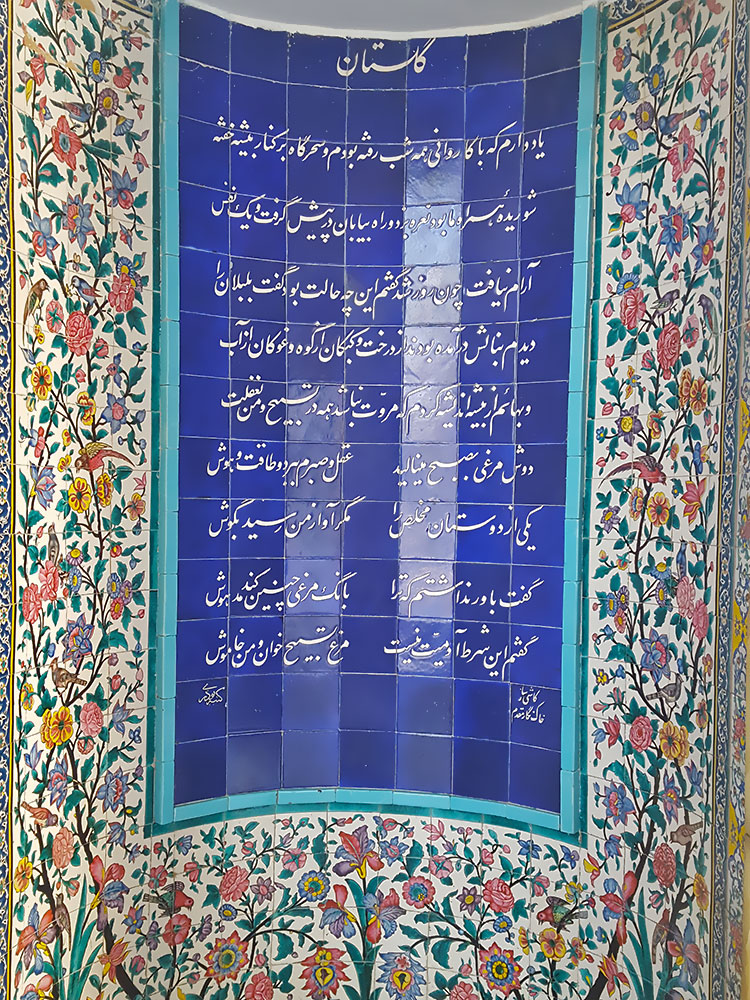
Bustan, one of the 100 greatest books of all time
Thanks to Andre du Ryer, Adam Olearius or Daniel Havart, the western world had the chance of being fascinated by the dramatic works of Saadi, this great Persian medieval poet. Guardian put Bustan as one of the 100 most excellent books of all time.
Barak Obama used Saadi's beautiful words to send his greetings to the Iranians for Nowruz in 2009.
Human beings are members of a whole,
In the creation of one essence and soul.
If one member is afflicted with pain,
Other members uneasy will remain.
If you've no sympathy for human pain,
The name of the human you cannot retain!
Saadi, the master of aphorisms, in this famous poem, calls for unity of human beings, neglecting all the barriers as differences define mankind. This amazing poem finds its way to the United Nations Hall as it is beautifully inscribed on an amazing Iranian hand-woven carpet.
Saadi lived a long life, and he died at the age of 90 (1290) and was buried in his convent among the garden in the northeast of Shiraz. His magnificent tomb with a tranquil dome catches the eyes and touches the hearts. Iranians truly admire this great master of Persian literature for his undeniable artistry in expressing deep moral, social, and ethical concepts with simple and precise language. Mirroring life-long experiences, social and psychological insights in the form of exciting wise anecdotes made Saadi's works praiseworthy and beyond time, region and nation.
1st of Ordibehesht, the second month of the Iranian solar calendar (20th of April), is dedicated to the master of Persian speech and named as the Saadi national day in Iran.
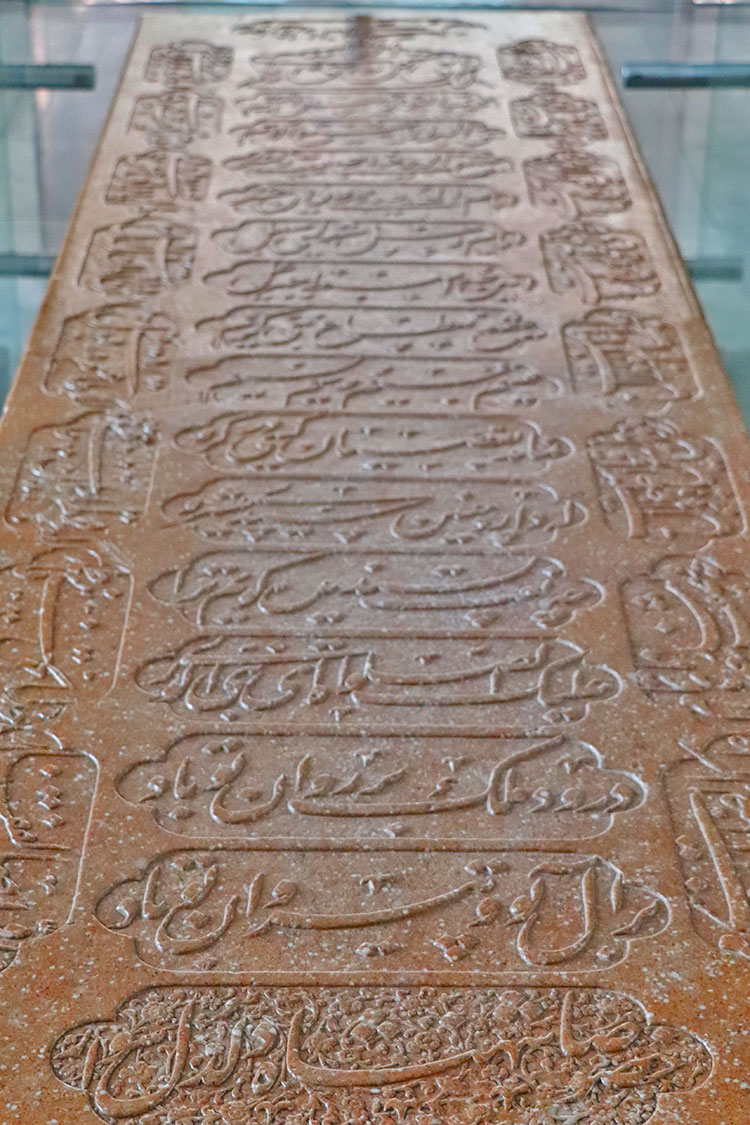
By Samaneh Zohrabi / TasteIran
